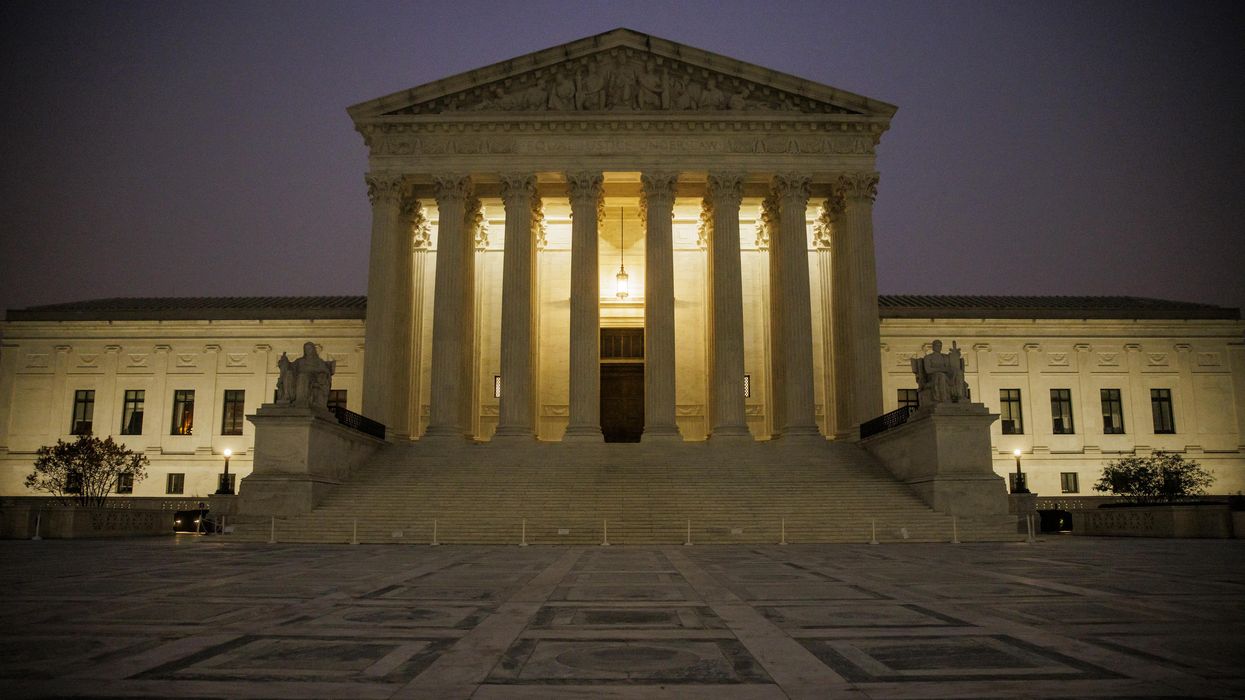On Wednesday, the Supreme Court will hear arguments in a case that could fundamentally shift the balance of power when it comes to election administration within state governments.
The case, Moore v. Harper, concerns a once-fringe legal theory known as the “independent state legislature doctrine,” which argues that lawmakers have final say in election law – not the courts, and not even state constitutions.
Nominally, the case concerns redistricting in North Carolina, but it has become a test of whether the system of checks and balances remains a universal part of the American political system, at least when it comes to election laws.
“Our democracy doesn’t work when corrupt politicians have unchecked power to rig elections,” said Joshua Graham Lynn, CEO of the nonpartisan reform group RepresentUs. “The Supreme Court must reject this shameless politician power grab.”
In February, the North Carolina Supreme Court tossed out the state’s new congressional map, determining legislators had engaged in partisan gerrymandering, in violation of the North Carolina Constitution. Republican lawmakers, who had drawn the map to heavily favor their party, then filed a lawsuit claiming the U.S. Constitution gives them sole authority to handle any and all aspects of elections law.
The Constitution's elections clause states: “The Times, Places and Manner of holding Elections for Senators and Representatives, shall be prescribed in each State by the Legislature thereof; but the Congress may at any time by Law make or alter such Regulations, except as to the Places of chusing Senators.”
Plaintiffs have used that language to claim no court has the authority to overrule legislative actions related to elections. “And there can be no question that this specific delegation of power to state legislatures encompasses the authority to draw the lines of congressional districts,” they wrote in the lawsuit.
But according to Ian Millhiser, who covers the Supreme Court for Vox, justices have repeatedly rejected similar claims for the past century, arguing that states have defined “legislature” more broadly to be any person or body empowered to engage in the legislative process (often including governors and courts).
Millhiser noted that the Moore case involves a state where lawmakers themselves delegated such power. “[E]ven if the independent state legislature doctrine is valid, North Carolina’s courts are still allowed to decide gerrymandering cases because the state legislature told them to do so,” he wrote.
Four of the conservative justices – Samuel Alito, Neil Gorsuch, Brett Kavanaugh and Clarence Thomas – appear to have embraced arguments in favor of the ISDL, giving it legitimacy in the eyes of some. Chief Justice John Roberts seems to be siding with the liberal wing of the court on this matter. If those positions hold, Justice Amy Coney Barrett would be the decisive vote. And while they could limit the ruling to the specifics of redistricting in North Carolina, there are many who are concerned about the potential national impact.
“This case is really just a fringe group of lawmakers trying to bring their branch of overreach to lawmakers across the country,” said Hudson McCormick, North Carolina director of the progressive State Innovation Exchange.
With few exceptions, other lawmakers are staying out of this case, McCormick said, because most do not want to see such an erosion of checks and balances.
“It’s a five-alarm fire for people concerned about democracy,” he said.




















Trump & Hegseth gave Mark Kelly a huge 2028 gift